

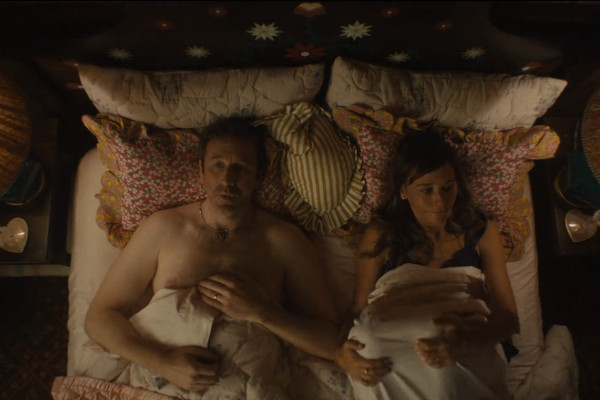
The lowest-ranked of the season seven episodes, which were released in 2025, and ranged from decent to pretty good. They also promised (and largely delivered, within reason) a return back to the core values of Black Mirror. Which is great, in essence, but it does mean that the show risks retreading old ground, as the "near future technology" framework isn't an unlimited scope.
The episode features Chris O'Dowd and Rashida Jones as Mike and Amanda, a couple who face tragedy when Amanda suffers a brain injury. She's brought back out of a coma thanks to a company called Rivermind, who build synthetic cells for the part of her brain that is damaged, and restore its function over a network.
Common People is fine, watchable, and quite amusing in parts. Maybe it doesn't need a full 56 minutes behind it, but it fills it reasonably well. But is its tale of bringing a loved one back to life through technology really that different, in pure essence, from Be Right Back? This doesn't make it bad, it just means that new ground is hard to find.
There's some digs at the rising subscription costs of streaming platforms, which is quite fun in a "biting the hand that feeds" way, and O'Dowd and Jones make a decent onscreen pairing. But somehow the whole thing feels a little muddled, and doesn't really come together. For example, the end of the story features an app where people can draw on the abilities of others who have used the same technology (such as becoming a parkour expert) but the couple don't try and artificially elevate Amanda's intelligence to try and figure a way out of their financial burdens. Instead, they seem thoroughly accepting of their fate, because that's the direction the story is going.
In trying to tell a wider story there's a subplot of an exploitative website called DumDummies, where people injure themselves for cash. It seems a little grafted on in parts, particularly as it brings about the episode's biggest plot hole - though as this entry has already been fairly spoiler-insensitive, that particular plot point appears as hidden text under the image above.
In all, this is an okay episode of Black Mirror, but feels a bit like a first or second draft, with all of its various competing ideas and concepts not quite realised to their full potential.
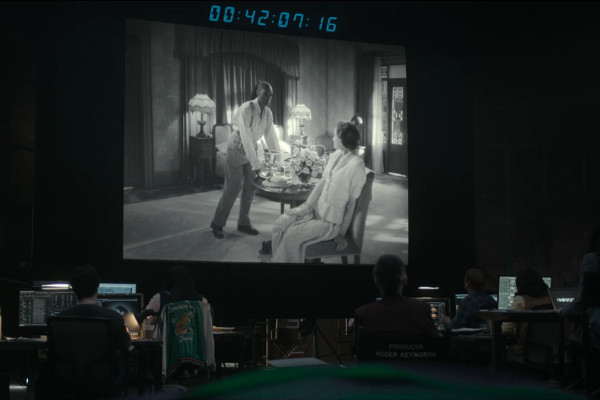
The fifth longest episode of Black Mirror, with its 76'02m duration falling just 15 seconds shorter than that of USS Calister. (It's a nerdy stat, sure... why do you think this place is called The Anorak Zone?)
The unnecessary length is probably the major detraction of the episode, as it does drag in spots. When any season is "new", it does mean episodes have the potential to be a little overrated on first viewing, and I'm already regretting putting this one so high. While some of the Black Mirror episodes have been watched twice or more to get a real "feel" for them, all of the season seven stories appear in the ranking after just a single viewing, and I'm not particularly looking forward to sitting through this one again.
Featuring Issa Rae as a Hollywood A-Lister (within the fiction of the show, not yet in real life), she's called upon to recreate an old B/W British film to repackage it to a new audience. There's stuff that doesn't quite add up with this, in that the "new audience" would still have to sit through black and white, something modern generations seem reluctant to do, in general. She also gender-swaps, making it a gay movie (no, I can't describe that genre of movie with the "Q" word like many people do today, as I'm of a generation that was alive before that word was "reclaimed", and it still feels uncomfortable) which would also put it outside the mainstream.
Plot oddities aside, the plot kicks in when Rae is trapped within the artificial reality of the old movie, and the female actress she's having a romance with begins to develop sentience. (Another point on terminology there... the actress, well played by Emma Corrin, doesn't react when Rae refers to her as an "actor", despite the fact that she's from 1949.) Charlie Brooker is savvy enough to acknowledge the similarities between this "technology helps an old movie actress develop sentience" play and Woody Allen's The Purple Rose of Cairo, even stating it in interviews and putting in some nods to acknowledge the debt.
It's a far-fetched/fantastical concept (delete as applicable), onto which an "emotional connection" is crudely bolted. Maybe it's a paucity of imagination on my part that makes it hard to go along with it, but detailing a doomed romance and existential crisis over a world where someone can mentally live inside a movie is a little too jarring in style.
This overview largely describes what's wrong with the episode, but it's fine, it's just scraped into the Top 20 here. It's entertaining enough, as has some invention, even if that invention is somewhat borrowed. It just feels a little like one you'd only watch once to get anything out of it, and, getting back to where we began, it's long.
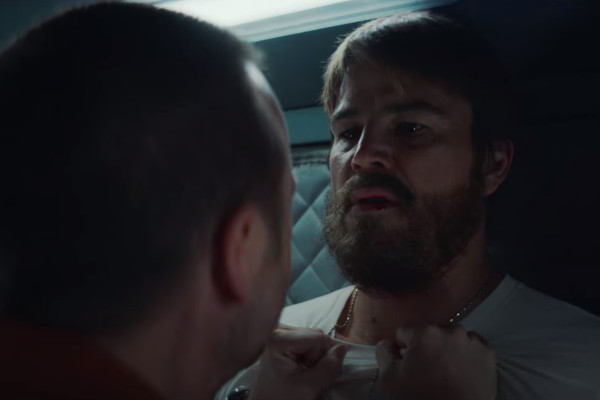
One of the hooks of the Netflix version of Black Mirror is the "Big Names". The sixth season starts off with Salma Hayek, while this edition gives us Aaron Paul, Josh Hartnett and Kate Mara. Maybe not quite A Listers, but certainly well known enough to hang a trailer on.
This edition takes Black Mirror into space, where two astronauts aboard a space station get to visit Earth via transfer into replicas. Set in an alternate version of the 1960s, things go wrong when the family and replica of one of the men is killed by a Manson-like cult.
What follows is fairly compelling over the 79 minute runtime (the third longest episode), and has some interesting things to say about masculinity and male pride. However, you may find there's not a single plot development you didn't expect.
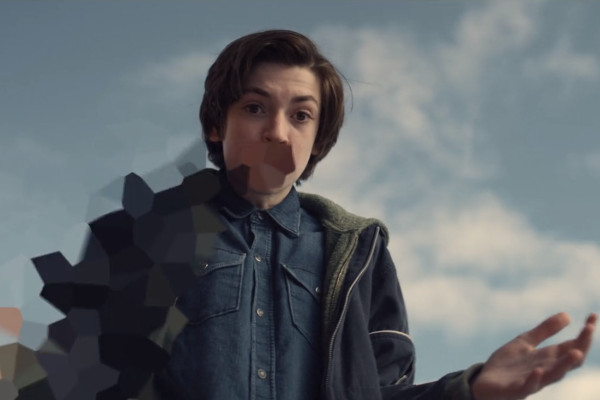
An interesting plot with many facets sees an over-protective mother chip her daughter's mind to follow her every movement via computer. Many issues are touched upon, including the psychological damage that can be caused by filtering a child from the full nature of the world around them, as well as issues of privacy in an age of extreme social media.
Pre-publicity for the fourth series ran back to May 2017, and having Jodie Foster as director on this episode was one of the biggest headlines. There's a great sense of style to her work, in particular a passage-of-time scene that involves the daughter aging as she repeatedly passes a neighbour's barking dog. There's much to say on this episode, as it literally removes the concept of the Male Gaze, but does so through the filter of another female character.
Sadly, it's one of the most derided episodes of the series, often appearing towards the bottom of rankings like these, with many feeling it lacks incident. Some might assume that it would be more regarded if Foster herself had appeared in the episode, firing a laser gun, but such a comment is snotty and elitist, so won't be made here.
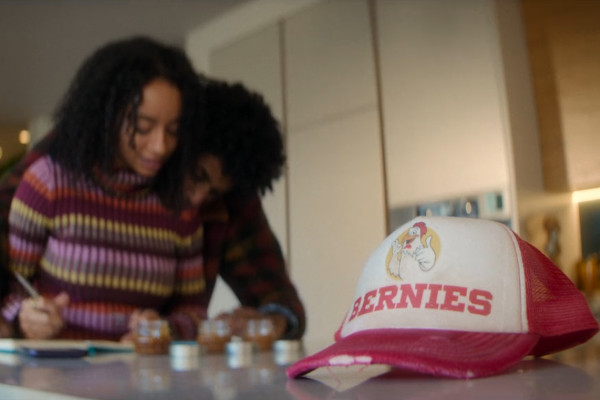
If there's a linking theme for season seven, it's that it frequently has a tendency to go "out there". Not just wild, fantastical concepts, but low-key, "ground level" stories that suddenly go into full blown fantasy just for the Hell of it.
Bête Noire begins as a quite intriguing episode that appears to be building around someone living their own personal Mandela Effect, before eventually branching out into something so wild and almost inconsistent with the opening that it feels like watching a completely different series from the one you started with.
As this article tries to be as spoiler sensitive as possible, within reason, said plot course won't be detailed too heavily, but the jump is striking, if not unsettling. Another interesting point is that Netflix reportedly made two versions, so that some of the "Mandela Effect" situations can be experienced differently for viewers.
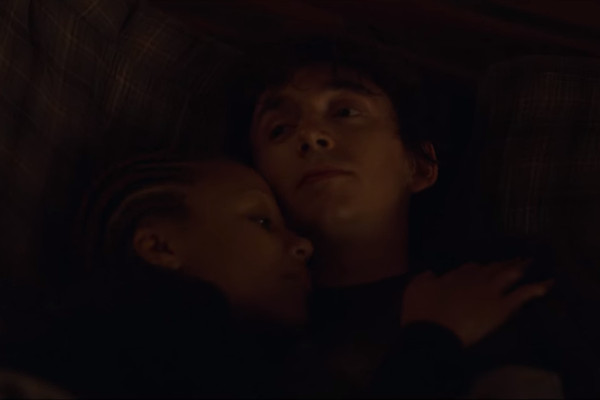
This is the sixth season episode that most resembles a traditional Black Mirror episode... other than the small fact that it has no real Black Mirror elements at all.
Set in the present day? Check. In the UK? Check. Genuinely quite disturbing in parts, the only thing holding this one back is that a real life murder mystery could have been done under the banner of many other programmes - something that it makes pains to point out, even if it does gently satirise said convention.
Lastly, hearing people putting on accents can be something of an irritant, as it takes away the realism when accents sound obviously fake. But while I thought the lady playing the mother in this went a bit too "Balamory" in places, I was generally convinced that I was watching Scottish actors. Yet Twatter lit up with actual Scottish people deriding the "Scottish" accents on show as completely absurd, and, while they may have exaggerated for effect, they would be more aware of what they're talking about than me...
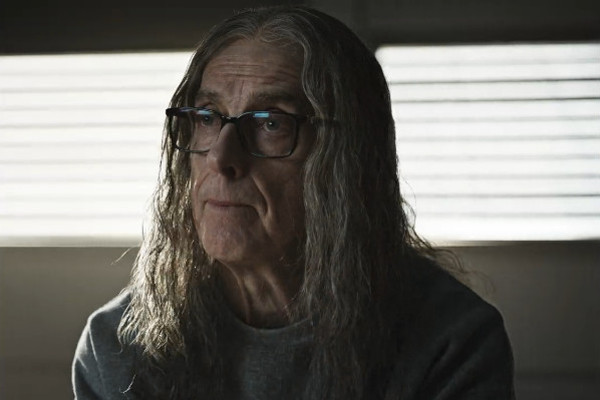
Plaything continues the season seven theme of going "out there" in its final moments, taking something tangible and making it more science fantasy, but then it's an odd set-up anyway. While USS Callister was the most trumpeted as a "sequel" episode, this one follows up the interactive Bandersnatch, which is a strange choice. After all, that was a story that had multiple different endings, and this story wouldn't really make sense tagged onto the ending of all of them.
Also, going from an interactive game version and into a more linear story seems the wrong way round, but this was okay. It helps with the likes of Peter Capaldi keeping the energy going, and any episode of Black Mirror that's back to the grimy UK model automatically gets more of a plus. We won't go too far into the "is it a UK or US show?" debate this time around as in 2025 that horse has well and truly bolted. There's people out there who think of Nose Dive as "old school" Black Mirror.
But if we lived in a world where the show branched off into two directions, and had an all-UK branch to continue the Channel 4 trajectory, this one would have followed Playtest (sort of), Shut Up and Dance, Hated in the Nation, Crocodile, Hang the DJ, Metalhead, Bandersnatch, Smithereens, Loch Henry, Demon 79, Bete Noire and Hotel Reverie (sort of). That's 13 episodes out of 27 for Netflix... a stat which more doubtful readers may feel has been brought up as I quite liked this episode but couldn't think of much to say about it. Such cynics.![]()